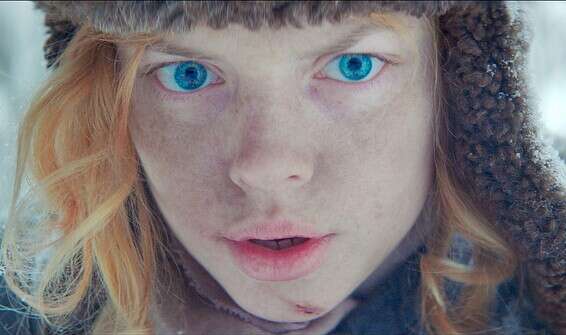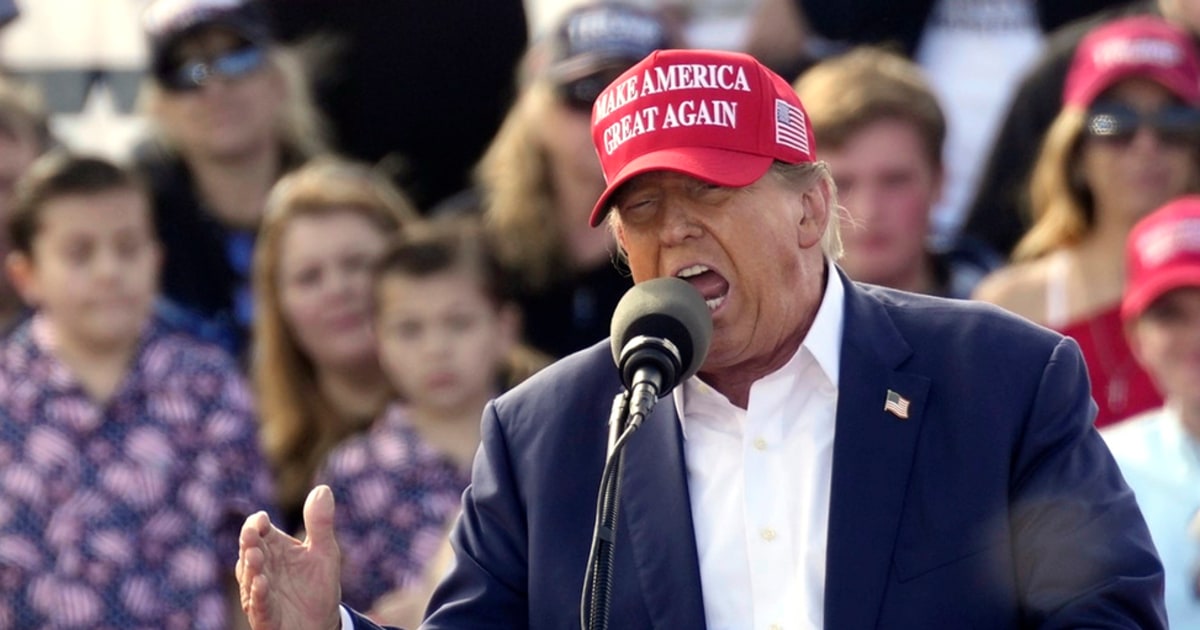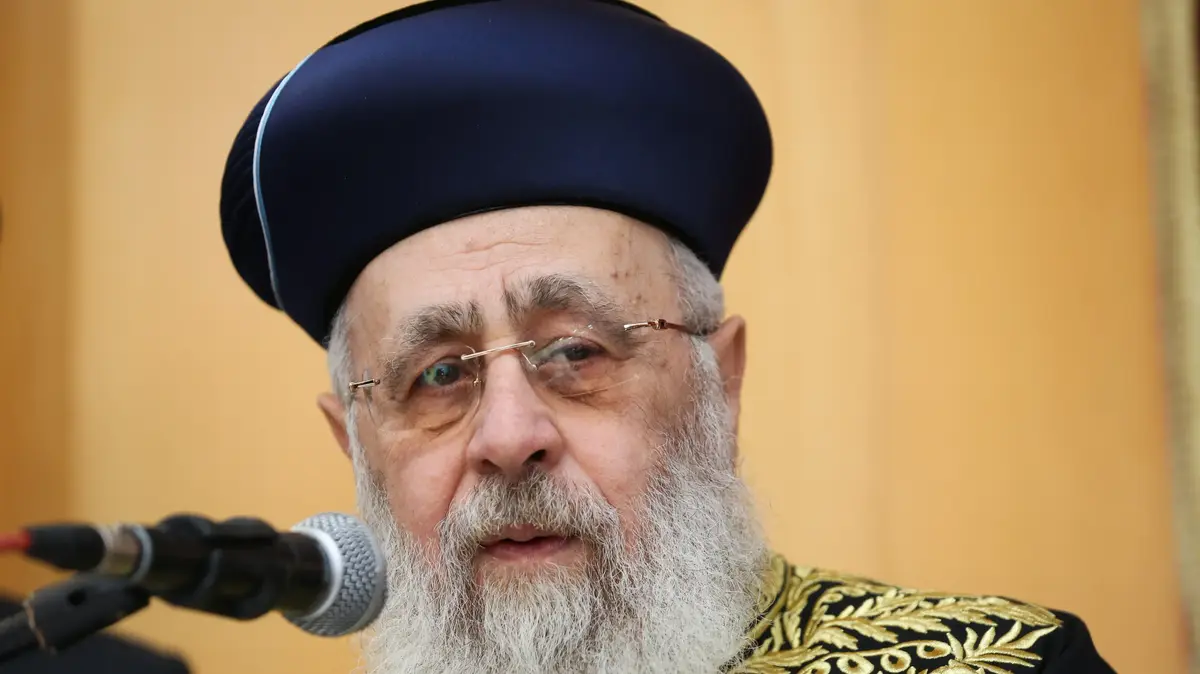It's hard to overstate Leonid Bernstein's contribution to saving thousands • In the film "Here 11" he talks about the moral dilemmas, and is documented in his last moments - as a true hero
What is the thing that establishes consciousness about the essence of a historical event?
A particular point of view or perhaps a point of view that becomes prevalent as part of an accepted interpretation of the constitutive event.
In all that is said about the manner of Jewish resistance in the Holocaust, the most tangible expression of them is assimilated into the historical narrative that included rebellions in the ghettos against the Nazis and their collaborators.
But at the same time, the weight of the story of the veterans - Jewish fighters in World War II - did not find a proper place in the history books.
This starting point was the basis of director Roman Shumonov's idea to make a film about such a heroic figure - the veteran and last important Jewish warrior Leonid Bernstein, who was a commander in a partisan battalion in World War II and was an important part of the campaign to defeat the Nazis.
The result - the Russian-speaking docu-drama film "Bernstein - The Last Partisan", which will be broadcast on the eve of Holocaust Remembrance Day at 9:15 PM on "Here 11".
The encounter with the fascinating and complex film, which also includes scenes that are not easy to watch, does not allow viewers to take their eyes off the screen for a moment, for fear of missing something.
In an accessible but sophisticated way, the film unfolds before our eyes key points in the story of Bernstein's life in a unique plot.
"I grew up on a completely different narrative," Shumonov, 37, enthusiastically explains to me. "My childhood memory of Russia includes fighters who did not lower their heads against the Nazis and fought with weapons and knives between their teeth until they came to Berlin and defeated evil, especially when my two grandparents fought in the army. "This narrative does not exist in Israeli society and its history, and is also one of the characteristics of the film, because we reveal to viewers something a little different on the subject, and all this on the state channel. As a child I dreamed of making a film like this, I grew up on these stories and it's the super topic for me."
An examination of some historical documents reveals the magnitude of Bernstein's actions and clarifies why it is appropriate for every Israeli to watch the film.
In fact, there is not a single Jewish veteran whose scope of work has been on such a historic scale: from Bernstein's enlistment in the Red Army in 1939, through his captivity - twice - and his escape, to his search for partisans in the forests and joining mines on trains - destroying no less than 44 Nazi trains and becomes the force commander of his unit, which at its peak numbered about 5,000 men.
In addition to these he was a key partner in the liberation of Slovakia and liberated many POW camps, and above all, in 1944, in Dembica, Poland, he discovered Hitler's first ballistic missile - in the secret facility where the tyrant developed Doomsday weapons (V2 missiles) - and Soviet Air Force planes destroyed him , The place.
"The screenwriter (Simon Schechter) told me about Bernstein's experiences," says Shomonov. "I discovered a super-interesting character, and found myself reading all eight of his books. I was just shocked. For years I read a lot of material on the subject, made a film about World War II. "But to this day I have not heard a story that comes close to the size of the drama and such a personality."
The scope of Bernstein's actions can be attested to by a series of Polish and Czechoslovakian medals and medals he has won, along with the Red Star Medal, four Medals of the "Great Patriotic War", the Partisan Medal and more.
Israeli filmography has not yet made a film in Russian about World War II. The production value of the film was clear to you from the beginning?
"I do not want to flatter my film, but the viewers, who are most important to me, know very well that credibility is extremely important, and for the film to look realistic it must be shot in the language in which it was made. I am convinced that Israeli viewers are smart enough to understand this. "If the plot is good, it's been less than a year."
Shumonov describes the sequence of events: "I originally thought of making, at the very least, a documentary, but when I was preparing for a meeting with Bernstein I noticed that it is very difficult for him to open up and express emotion, and of course an emotionless film is hard to connect with. Players. "
Even if we put aside for a moment the making of the film in Russian, the description of the creation of the film by Shumonov reveals a process that included a continuing mask of challenges.
First, Israeli cinema is not accustomed to a combination of docu-drama and more in this thematic context.
In this context, the film has been used as a breakthrough.
"When we submitted the idea to the funds, they looked at us as if we had fallen from the moon - the assessment was that this format could not work," confirms Shumonov, adding perspective.
"For me, the fact that the part of the drama is even bigger than that of the docu served me not only in creating the viewers' emotional identification with the characters, but also in the sense that we, as human beings, exist all the time - past and present, just as the elderly Bernstein can be seen. For a certain action and seconds later to experience it in a film, in a plot, at a time when it happened eight decades ago. "
For four years, Shumonov and producer Ronen Machlis-Balsam (production company Metapur Interactive Ltd.) shot the film, struggling with budget difficulties along the way.
"It turned out that we filmed the order chronologically, and in practice, each year depicted in the film took a year in real time," Shumonov smiles.
"It turned out that the actor who played Bernstein grew up with the film, and of course it connected him to the film deeply. In general, fortunately, the cast we recruited in Ukraine reappeared to him every time, like those loyal soldiers who played in the film, despite the technical problems. The film stars them. "
Shumonov accompanied Bernstein in his last years until the day he closed his eyes, exactly two years ago, missing no detail.
Bernstein's funeral in the Kiryat Ata cemetery is also documented in a photograph.
"We decided to document this as well. To me, this is an important part of the film, because his words take on a new meaning, especially in the shadow of documenting the funeral event, and these are addressed to the younger generation watching it."
Constant creaking noise
In 1993, Bernstein immigrated to Israel on his own, his two sons and his wife remained in the Ukraine, and he lived in a small one-and-a-half-room apartment whose misery was evident, for three decades until his death, when those around him were unaware of anyone and his work.
"We connected really quickly," says Shumonov, whose biography is similar in this context: he also immigrated to Israel alone from Georgia 20 years ago on the "Sela" program and lived in Carmiel, served as a lone soldier and is now married and a father of two at Kibbutz Bror Hayil.
"He saw me as his partisan, and told me that if we were at war, I would fight with him. I was tough with him in interviews, that is, I took every detail out of him, and more than once he would call me, with incredible clarity in his mid-90s. "In general, we would drink vodka on birthdays or when there was a reason to celebrate, and that, as mentioned, even though it was difficult to connect it to emotion."
The loud roaring noise burns the film throughout, a kind of noise that divides the film into two dimensions - the horror of the war and the inferno (expressed in it) in the face of the long-awaited, quiet situation.
I also felt the same way when reading the interviews published with Bernstein during his years in Israel, in which his sense of alienation is prominent.
He did not get the recognition he wished for her, and it seems that he was quite satisfied with it.
Shumonov: "The secondness of his attitude toward Israel is immediately noticeable. Like other Russian immigrants of his time, he is a simple and naive person in this context. Until the end of his life and in general, he demanded nothing but a description of his past. "The Righteous Among the Nations, who popped up occasionally, while Bernstein, who roughly saved thousands of people, is not known at all. For us alone, we should have named streets or any other honorable commemoration after him."
Viewers of the film are constantly turned on, both tense and captivated. Didn't you worry that things were too hard to digest?
"The dose is the determinant, but it should be remembered that for me I was Bernstein's messenger to describe the truth," describes Shumonov, referring to a scene in a film depicting the burning of an entire village over his people, wives and tap, of which Bernstein was a witness.
“There was also one whip I took down because I felt it was‘ one too many, ’and I didn’t want to turn it into burning porn.
"The same thing happened to me in another whip, where the Germans poured fuel on children, and I did not want to carry a photo scene with the children screaming in the background, so I canceled it."
The Jewish awakening
The film touches quite a bit on the shrinking world of emotion and expression in general.
Bernstein converges within himself and testifies to himself that he becomes like an animal, a survivor.
His moral judgment is not necessarily seemingly "normative," in the sense that we perceive it in our day.
"War is not a normal thing by any means, but it is the only place where a person can be 'clean' and naked as he is - for better or for worse," says Shumonov. "The interesting thing is that we do not know what we would do in the dilemmas he faced. There is no decisive decision. "
In one of the scenes that sharpen the moral complexity, one of Bernstein's subordinates rapes a local teacher, and Bernstein decides to execute him along with those who passed away in silence about his act.
"In whose name is Bernstein taking the lives of four of his comrades in arms?"
The director wonders, "Did he become God in his own eyes? On the other hand, in this act he marks his hierarchy, and the fact is that there were no cases of looting and rape after this incident. Morally, I intentionally do not go into too much explanation why he did this or that, but leaves "This is for viewers who are watching a war hero who is first and foremost a person who is at the heart of the horror, and should be conducted with effective composure."
In a sense, the physical entrance into the depths of the forest is the entrance to such and such ramifications from which there is no "correct" way out, as a parable of a vision of life.
"The film features heavy physical and mental ramifications - Bernstein revealed his identity and the person he became inside. Despite everything, in the end he did not become an animal, it was very important for me to show it. Bernstein sharpens the idea of the journey each of us chooses during life The fragile situation in which he finds himself emphasizes to him that precisely because death lurks in every corner - it does not matter, but if what kind of person are you when you meet him: Who are you really?
And there is of course the Jewish point. Bernstein calls himself by another name (Vasilyev) to the crucial point in the film where his Jewish identity is revealed. How much is it fed as a mirror image of the anti-Semitism he encounters?
"Alongside his Russian-Soviet national identity, he discovered in a sense his Jewish identity during the battles and human situations around him" (this is reflected, for example, when Bernstein discovers that one of his commanders is hiding decorations on his work because he is Jewish. Bernstein, who was a Ukrainian boxing champion Already as a boy, he hid at that point his being a Jew - he takes the commander to the field and marvels at his beatings, dl).
"It is possible that his Jewish awakening was more tangible in the 1960s, although he was aware of his identity before, this place was there. Of course he also saved Jews during the war. So at one point, when he released people, he revealed that he was Jewish. Thus, he closed a circle with himself. "
In the balance between the smallness of man in relation to the almost inhuman situation in which he found himself, I left the film with a sense of sober realism, and even semi-optimism. Do you share this feeling?
"In a sense yes. On the lapel of Bernstein's garment should have been sewn a yellow badge, and he said he made his choice. When he released people to freedom, he made sure to instill in them the insight that they were free to go, but they had to make an informed examination of the situation. "In me so deeply and influenced me in a way that I think I will only understand in a few years. But his human message for all of us is pretty clear - only a free person really chooses for himself how to live, and how to die. We should think about it every day."









